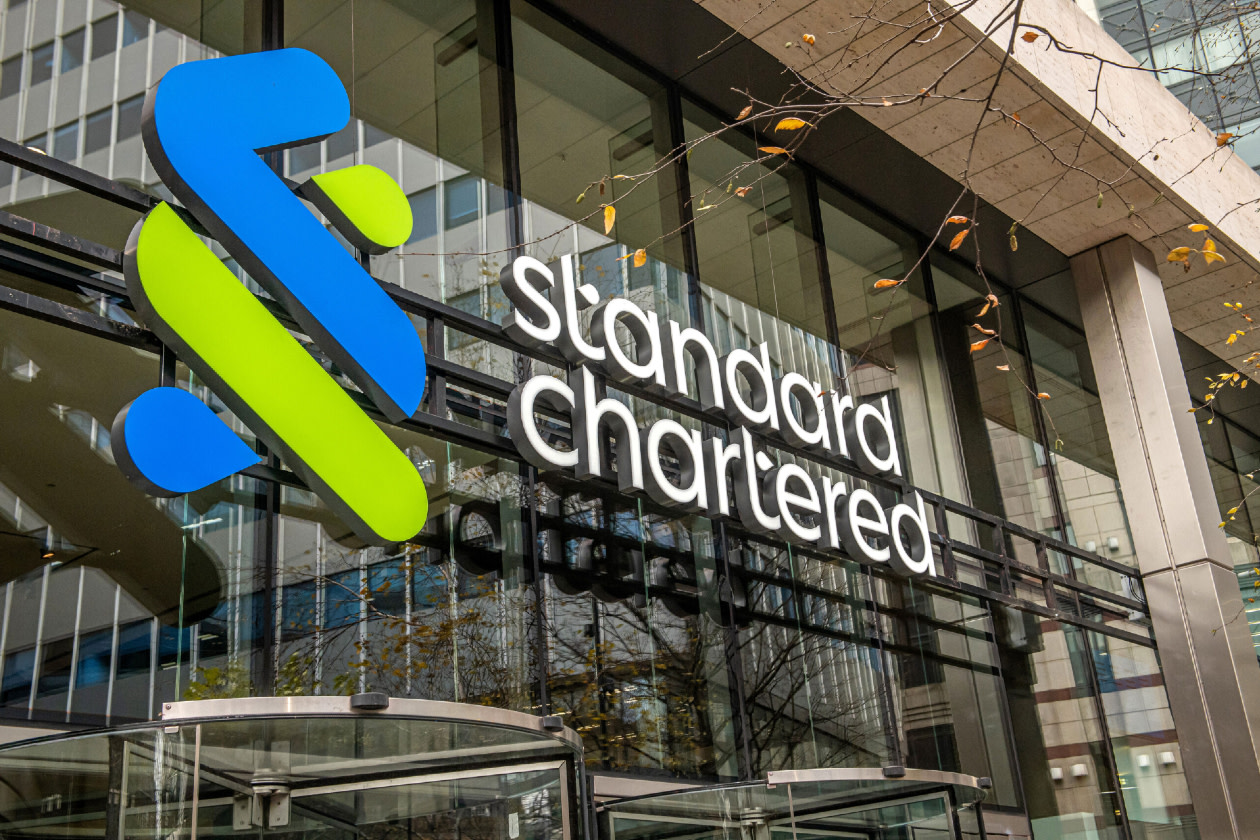Standard Chartered reported a 14% rise in second-quarter income to $5.5bn ($5.2bn expected), ignoring currency impacts. Growth was entirely driven by non-interest income (which includes areas like wealth management and investment banking).
Underlying profit before tax was up 34% to $2.4bn ($1.9bn expected). Credit quality remains strong.
The group’s CET1 ratio, a key capital measure, was 14.3% at the end of the period (target 13-14%). A new $1.3bn buyback was announced and an interim dividend of 12.3 cents per share, up 37%.
There was a small uptick to full-year guidance. Operating income is now expected at the bottom of the 5-7% range (previously below) and growth from 2023-26 is still tracking toward the upper end of the same range.
The shares were broadly flat in early trading.
Our view
Standard Chartered is making decent progress despite facing more headwinds than some of its UK-focused peers. Growth was a touch better than expected over the second quarter, and that gave management enough confidence to nudge full-year guidance higher.
Medium-term guidance out to 2026 shows promising signs. Volume growth, cost cuts and a benefit from the structural hedge are expected to help deliver a return on tangible equity approaching 13% in 2026 (2024: 11.7%). Markets have begun to price in that outcome, but we think there are still some risks as it’s highly reliant on strong growth from more volatile non-interest income.
Standard operates a sprawling business, both geographically and in terms of product ranges. This offers some nice diversification, but it comes at a cost. The only market it's really a leader in is Hong Kong, with it playing second fiddle to other names in wider Asian, African, and European markets.
Rapid interbank rate cuts in the key Hong Kong market have been a headwind, though there is now some scope to see that unwind in the coming quarters, which would be beneficial. But management seems confident they can hit guidance even if that doesn’t come through, thanks to progress across the investment banks and wealth management.
Traditional banking (deposits and lending) is a relatively small part of the pie, with institutional banking in areas like trade finance, cash management, and trading making up the bulk of the operation. In retail banking, the focus is heavily skewed to the more affluent areas of the market where higher growth is on offer.
These are likely to be the business areas driving growth over the coming year. Standard has spent several years investing in the Financial Markets and Wealth Management divisions to help drive income that’s a little less dependent on interest rates.
These divisions are also less capital intensive, which gives a little more wiggle room for things like buybacks – though none are ever guaranteed.
The balance sheet’s in a good place, and there are growth drivers to work on. Management has done a decent job of spelling out the moving parts, and we think areas like Asian wealth management are an attractive segment to fuel growth.
That said, there’s still work ahead to convince markets that it can consistently deliver, and with a lot of optimism now priced in, we think other names in the sector offer better near and longer-term outlooks.
Environmental, social and governance (ESG) risk
The financials sector is medium-risk in terms of ESG. Product governance is the largest risk for most companies, especially those in the US and Europe with enhanced regulatory scrutiny. Data privacy and security are also an increasingly important risk for banks and diversified financial firms. Business ethics, ESG integration and labour relations are also worth monitoring.
According to Sustainalytics, Standard Chartered’s management of material ESG issues is strong.
Standard’s strong programs and policies are offset by involvement in multiple controversies, reducing its management score. However, the bank has improved disclosure in areas like data privacy, security, and product governance. It introduced external cybersecurity assessments designed by the Bank of England and Prudential Regulation Authority, and has management in place to ensure responsible product offerings. Improvement areas include lack of transparency in gender pay, high employee turnover, and poor integration of ESG into asset management.
Standard Chartered key facts
All ratios are sourced from LSEG Datastream, based on previous day’s closing values. Please remember yields are variable and not a reliable indicator of future income. Keep in mind key figures shouldn’t be looked at on their own – it’s important to understand the big picture.
This article is not advice or a recommendation to buy, sell or hold any investment.No view is given on the present or future value or price of any investment, and investors should form their own view on any proposed investment.This article has not been prepared in accordance with legal requirements designed to promote the independence of investment research and is considered a marketing communication.Non - independent research is not subject to FCA rules prohibiting dealing ahead of research, however HL has put controls in place(including dealing restrictions, physical and information barriers) to manage potential conflicts of interest presented by such dealing.Please see our full non - independent research disclosure for more information.


